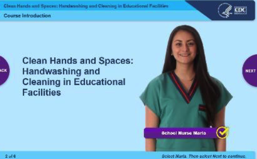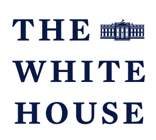| Please cast your vote for each category by using the button below. Voting opens December 1st, 2021, and Closes on January 1st, 2022. |
|
|
|
| Upcoming Rural Conferences and Events |
|
|
|
Dear Partners in Rural Education: On behalf of the Department of Educational Administration and the Saskatchewan Educational Leadership Unit (SELU) in the College of Education at the University of Saskatchewan, Canada, it is my pleasure to invite you to participate in the 27th annual National Rural Congress to be held virtually on March 27th and 28th, 2022. The theme of the Congress is Rural Education for a Sustainable Future. Our Congress will highlight global perspectives on rural and remote education and sustainability research and engender exciting discussions between educators, school and system leaders, parents, community members, and researchers. The University of Saskatchewan is situated on Treaty 6 territory and the homeland of the Métis in Saskatoon, Saskatchewan, Canada. The Department of Educational Administration in the College of Education has a long history of providing leadership, research, and programming that supports rural educators, schools, and communities. It works in collaboration with SELU that has over 31 years of leadership in practitioner-focused research and development for educational partners, First Nations authorities, and human services agencies. The Congress will begin on Sunday with a keynote address offered by Dr. Maureen Reed, a professor, and UNESCO Co-Chair in Biocultural Diversity, Sustainability, Reconciliation and Renewal from the University of Saskatchewan. On Monday, we have planned a student panel presentation on sustainable land-based education. The Congress will conclude with a session focused on resources and opportunities for supporting Agriculture in the Classroom. In between the keynote sessions, we have planned learning sessions and moderated dialogues to build in relationality and discussions. We also will be showcasing graduate student research presentations as a feature of the virtual event. We hope that you will consider forwarding a presentation for our learning sessions and that you feel free to forward the call to others who have an interest in the programmatic and research innovations found in local spaces committed to rural schools and communities. Take care, and we looking forward to hearing from you! Dr. Dawn Wallin Director, National Congress on Rural Education in Canada 2022 |
|
TREA is proud to be a part of the Texas Rural Schools Spring Conference to be held in February 2022 and hosted by ESC Region 13. Please see the information below, and feel free to contact April Briscoe at ESC Region 13 directly if you are interested. Registration February 17-18, 2022 Sheraton Austin Georgetown Hotel Conference registration is $125.00 Presenter Proposal Application Submissions Information regarding proposal applications for Rural Schools Conference: Proposal deadline: January 5, 2022 Proposal acceptance notification: January 13, 2022 |
|
| CDC: Health and Safety Updates |
|  |
Health and safety are top priorities in educational settings. If you work in an educational setting, you play a unique and important role in promoting good hand hygiene and clean educational spaces. Proper hygiene is an important part of maintaining a healthy education setting. This includes practicing good hand hygiene; cleaning, sanitizing, and disinfecting surfaces correctly; and having a solid hand hygiene and cleaning plan in place. To help you keep your facility healthy and safe, the Centers for Disease Control and Prevention (CDC) and the CDC Foundation developed Clean Hands and Spaces, online training for educators, administrators, and supporting personnel in K-12 schools and early care and education. What does the training include? The training consists of four modules that focus on: - • How and when to clean hands.
- • How to create a hygiene plan for an educational environment.
- • How to select, use, and store cleaning products and disinfectants.
- • How to team up with parents and caregivers to build good hygiene habits with children.
When can I take it? You may take the training modules at your own pace and at a time convenient for you. Completion of all the training modules may take 2 to 3 hours depending on your educational role. Why should I take it? The training shares best practices and strategies to help keep everyone at your educational facility healthy. After completing this training, you will be able to help your facility make a plan to support hand hygiene and clean spaces, select the correct cleaning methods and products to use and know how to properly use and store hand hygiene, cleaning, and disinfection products. You may receive free continuing education credits for completing the training.
Where should I go to take it? Visit the following link to access the training: https://www.train.org/cdctrain/course/1100489 Let’s all work together to promote clean and healthy spaces for the safety of our kids and community. We can do this together! Short- |
|
|
|
| White House Covid-19 Education Taskforce: Test to Stay, Get Vaccinated, Get Boosted |
|  |
For schools: school-based transmission of COVID-19 can remain low with layered prevention strategies, including test-to-stay.
Setting up testing for COVID-19 in schools is one of the most important things schools can do to contain the spread of COVID-19 amongst students and staff. Now, schools have a new tool they can use to keep learning in-person even if cases arise: test to stay.
Test to stay combines two important prevention strategies – contact tracing (identifying those who were exposed to COVID-19) and serial testing (repeated testing following exposure) at school – to contain the spread of the virus while keeping kids safe in school. CDC studied test to stay approaches and found that – when implemented along with other layered prevention strategies – test to stay limited transmission of COVID-19 in school buildings, while also saving valuable in-person learning time for students.
CDC emphasized some key actions for schools in implementing test-to-stay programs. These include frequent testing of close contacts after exposure – repeated at least twice during a seven-day period post-exposure; consistently wearing masks while in school; robust contact tracing to ensure that all close contacts are properly identified and notified of their exposure, and get tested; staying home and isolating for anyone who tests positive; and continued implementation of layered prevention strategies as described in the CDC K-12 guidance.
As you all know, the American Rescue Plan provided $130 billion for K-12 schools to implement mitigation strategies like a test to stay, and an additional $10 billion dedicated specifically to school-based COVID-19 testing. Schools can work with their state and local health departments to get started on tests to stay right away.
Please find links below to CDC resources on the test to stay:
For parents, the message is consistent and clear: get your kids vaccinated.
The most important takeaway for parents remains the same: getting your child vaccinated is the best way to protect them from serious illness, and to keep them safely learning in school all school year long. Vaccination is still the most important defense in keeping our schools safe from COVID. The benefits are clear. If your child is vaccinated:
- They don’t have to quarantine after exposure to the virus, as long as they are not symptomatic.
- They do not need to participate in screening testing.
- They help keep kids safe in school and schools safely open and help avoid activities they love – like playing sports and participating in extracurriculars – from getting canceled.
- And most importantly, they are protected from a serious illness.
Already, nearly 6 million kids have gotten the extra protection of a vaccine. And we have 35,000 sites designed specifically for kids, and thousands of schools nationwide have set up school-located vaccine clinics to provide direct access to the COVID shot for families. So over the holidays, even more parents can take their kids to get vaccinated, or they can visit a new family site to get a child vaccinated and get a booster themselves.
For school staff and all eligible adults: get boosted.
Everyone eligible for a booster shot should get one right away – this includes our educators and school staff. Boosters provide an improved level of protection against infection with COVID-19. We know that vaccines remain effective in preventing severe illness, hospitalization, and death. As we continue to work to stay ahead of the virus, the best thing you can do right now is to go get your booster shot today.
Recently, the Centers for Disease Control and Prevention issued updated guidance recommending that every adult get a booster. Everyone ages 16 and older can now get a COVID-19 vaccine booster. You can get your booster:
- 6 months after your 2nd dose of the Pfizer-BioNTech or Moderna vaccine; or
- 2 months after your single dose of Johnson & Johnson’s Janssen vaccine.
Additionally, we are collaborating with the American Federation of Teachers (AFT) and the National Education Association (NEA) – two of the largest unions in the country – who will reach out to their 5 million collective members to encourage them to get the booster shots, including through phone calls, texts, emails and through a new social and advertising campaigns on the importance of boosters.
Boosters are free and readily available at over 80,000 locations coast to coast. You have 3 ways to find free vaccines near you:
- Go to vaccines.gov
- Text your ZIP code to 438829
- Call 1-800-232-0233
|
|
|
|
| Final Session – All are Welcome! Testing Strategies for School Leaders, Week 8 |
| To continue supporting school and district leaders and their COVID-19 testing programs, The Rockefeller Foundation along with the White House, the U.S. Department of Education, and the Centers for Disease Control and Prevention launched a virtual weekly learning network in early November. This is the last week of the series, with one final session on Tuesday, December 21, from 5–6 PM ET. During the session, we will summarize best practices and lessons learned over the past seven weeks.
The network is facilitated by nationally recognized school health leader, Diana Bruce, with support from other school leaders who have deep experience doing school-based testing.
This learning network is a forum to ask questions, hear directly from other school leaders who have done this work, and engage some of our nation’s top experts on technical issues.
|
|
|
|
|